St Lucia's Female Farmers
The future is brighter for female farmers in St Lucia thanks to Helen’s Daughters
by Yasemen Kaner-White
This is a feature from Issue 15 of Charitable Traveller.
“Land in St Lucia is so fertile, you simply plant something and it soon sprouts up” says Sylvanus Lewis, head gardener at the desirable all-inclusive East Winds hotel, which boasts beautiful gardens showing off the vibrant flora and fauna found on the island. Guests can book a tour with him to learn about the medicinal values held by the medley of indigenous plants, and his tours are renowned for lasting a good few hours due to the inquisitive visitors wanting to know more.
To be in St Lucia is to feel the diverse nature that surrounds you. It’s entwined in daily life, whether it be sea-side, hiking the Pitons or doing as the St Lucians do and swimming under a waterfall and soaking in natural mud baths and hot springs.
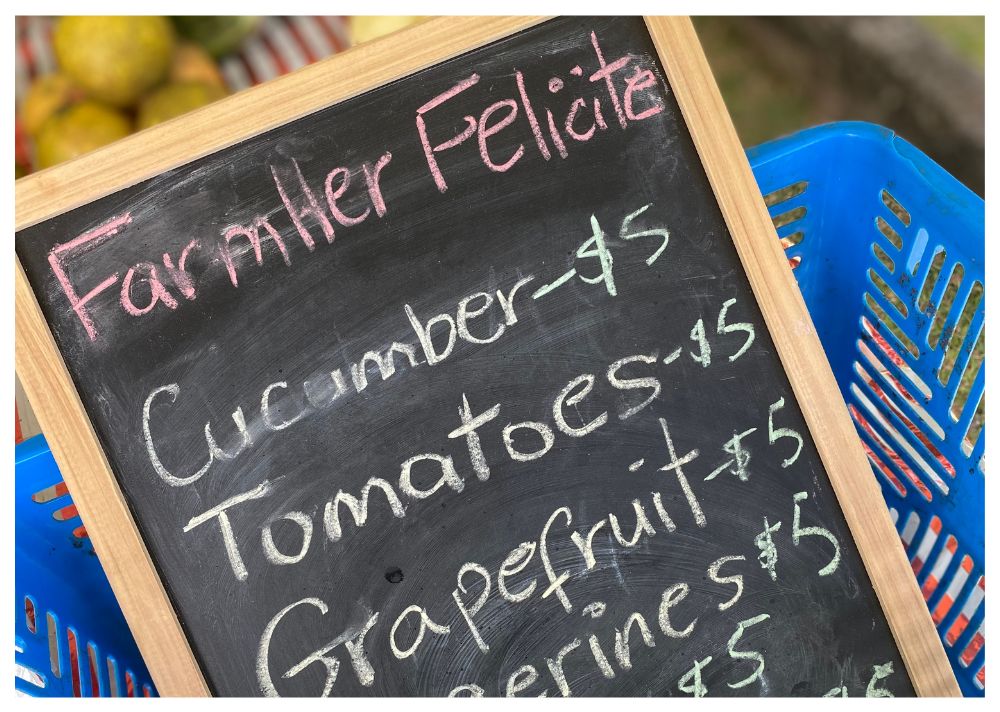
The land provides a life for St Lucians beyond pleasure, however. It’s also economically important, with farming playing a big role in the community. Women have always contributed to the local agriculture but it’s long been unacknowledged, so I’m here to meet Keithlin Caroo, a woman who is helping to give recognition and support to St Lucia’s many female farmers through her charity, Helen’s Daughters, which she founded in 2016.
The charity, like the country itself, is aptly named after a woman. ‘St Lucia’ derives from Saint Lucy of Syracuse (AD 283 – 304) and Helen’s Daughters is so named because Helen is often the nickname for St Lucia, which was seven times British ruled and seven times French. So St Lucia, like Helen of Troy, was fought over.

Caroo comes from a farming background on both sides of her family, and the idea for Helen’s Daughters came after her grandma passed away. She was sorting through paperwork and noticed that, although both her grandparents equally worked on the farm – Caroo distinctly remembers both her grandparents waking at 3am to work on their land – only her grandfather was named as a farmer on her mother’s birth certificate. Her grandmother was referred to as a housewife, a common occurrence locally.
“If half of the people in the agricultural sector are not recognised and supported and seen as equals, then that is a huge issue,” says Caroo. Caroo graduated from the University of Puerto Rico with a BA in political science before going on to gain an MSc in international relations.
From there, she worked at the UN for five years, covering gender inequality in peacekeeping and political affairs, yet her ambition was always to develop work in farming in small island states. Back and forth between work in the USA and her home in St Lucia, she noticed that tourism had replaced agriculture as the main income for the economy, so a lot of rural communities were suffering.
Historically, the UK had given preferential treatment to St Lucia to supply bananas, and many farmers had made a lot of money and created a strong middle class. But when that trade declined, so did their wealth and they became some of the poorer members of St Lucian society. With 80 per cent of St Lucia’s land being rural, it became a very pronounced problem.
Caroo started to see the myriad of problems with St Lucia’s agriculture, including its aging population and the fact there isn’t a recovery strategy to reignite its agriculture sector. She also noticed that the agriculture was based on export as opposed to feeding its own nation.
Thinking about women like her grandmother, who weren’t certified farmers, Caroo soon realised that supporting and empowering smallholding farmers would increase yields. So she set up the charity Helen’s Daughters in 2016 to help educate women on best farming practices, including climate resilience, the benefits of reducing the use of pesticides, and knowing how to prevent wastage by finding ways to store and preserve crops.
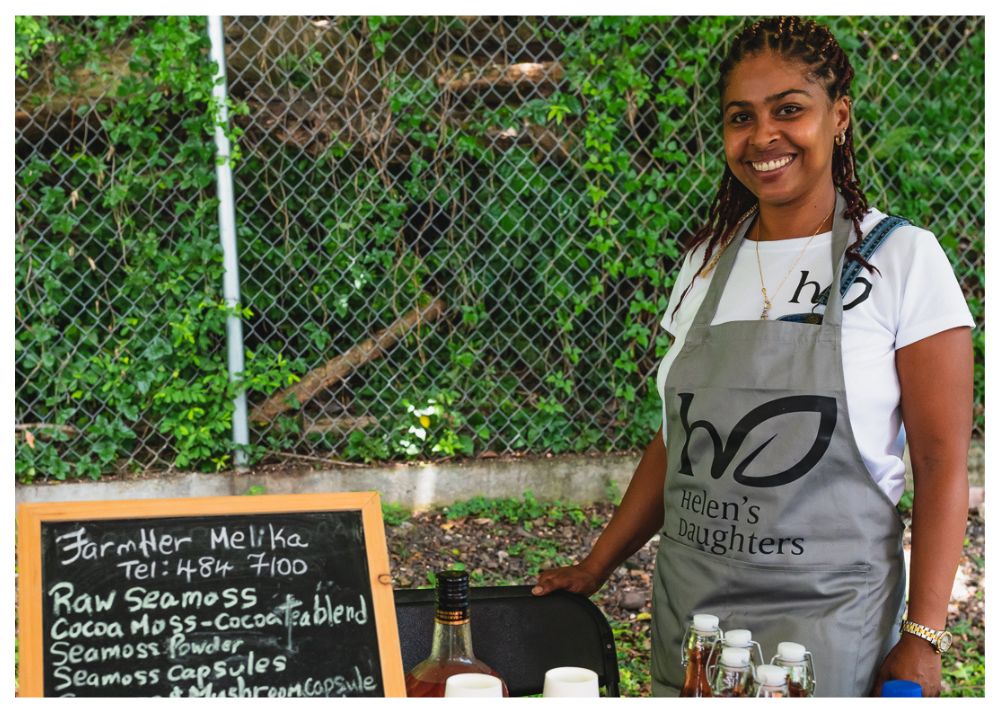
Caroo set up the charity Helen’s Daughters in 2016 to help educate women on best farming practices, including climate reilience and how to preserve crops
The charity also helps its members, aptly named FarmHers, with business planning, including creating business plans, financial literacy and seeking financial investment. It gives the members group health insurance and even fun getaways such as an annual health and wellness retreat, so they have much needed time out from tending to their farms.
The charity is having a positive impact and growing in strength. In 2022 it doubled its membership to nearly 100 and 94 students graduated from its Women’s Farmers Academy. It also hosted 14 events throughout the year and had 736 beneficiaries.
Getting Involved
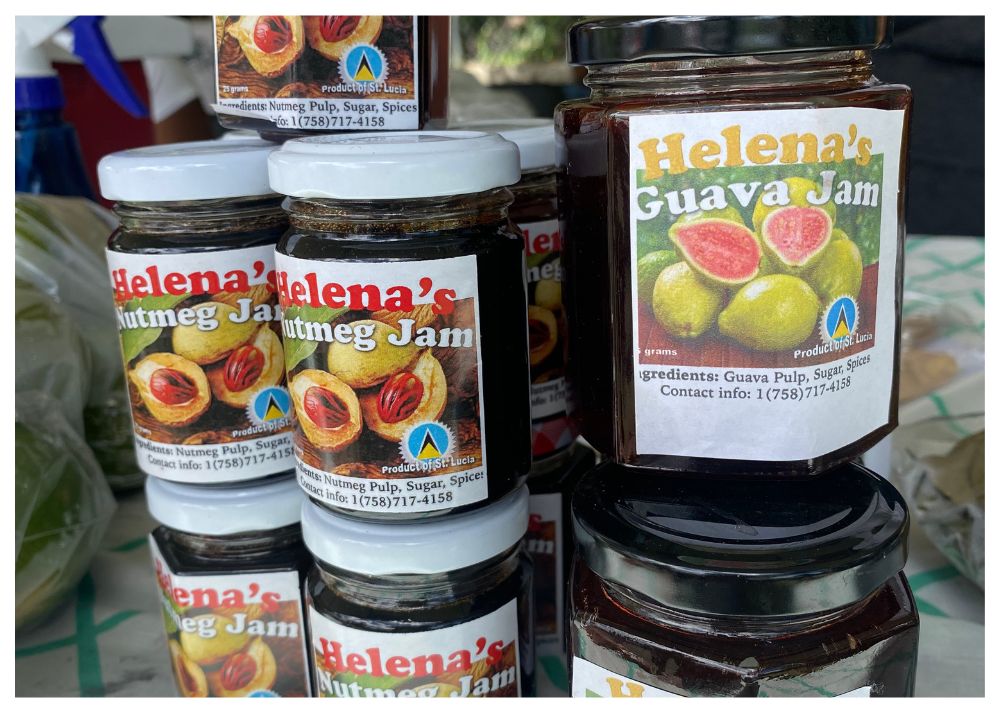
It’s great to hear about the work that Helen’s Daughters is doing behind the scenes, but how can holidaymakers play a part? For starters, visitors can book medicinal garden tours with members of Helen’s Daughters to learn first-hand the traditional knowledge of which herbs can be used as alternative medicine.
It’s an element Caroo is keen to nurture, so book a medicinal garden tour with Helena Thomas, from In Bloom-Mother Nature’s Way, and you’ll get an insight into the role women play in the production of food and how women farm differently. You’ll also plant your own seedlings take a look at flora and fauna endemic to the island and learn how to make local spices and jams, before tasting some light refreshments from the farm in a relaxing spot by the nearby river.
Visitors can book tours with members of Helen’s Daughters to learn first-hand the traditional knowledge of which herbs can be used as alternative medicine
Helen’s Daughters also works to help its members sell their produce – and two channels it focuses on are local markets, and local hotels. Time your visit to coincide with the monthly FarmHers Saturday market and you’ll find fresh produce including dasheen, aubergine, calaloo, seasoning pepper, plantain, passionfruit icicles and fresh coconut water. Items to savour at a later date include coconut fudge, herbal teas, jams, tamarind balls and local seamoss products, such as seamoss spice rum, as well as beauty products like handmade soaps, beauty oil and scented candles.
Eating local is always interesting and the market is perfect for this. For breakfast there’s cocoa tea, coconut bakes with saltfish, fried bakes with cheese, spice tea, breadfruit fishcakes, fresh local juices, while at lunchtime there’s pig- tail bouillon, baked chicken stew, pork, fish, breadfruit salad and delectable fried plantain. More than simply a collection of stalls, at the FarmHers market there’a a host, live music, tutorials and demonstrations, including home gardening tips and wellness talks.
While in St Lucia, also make time to visit Hotel Chocolat’s Rabot Estate, where Helen’s Daughters have an apprentice programme running an organic farm. Open for tours, I was shown round by Biann Best, who received one of the charity’s two annual scholarships to study agricultural science and is a part-time apprentice at the farm.
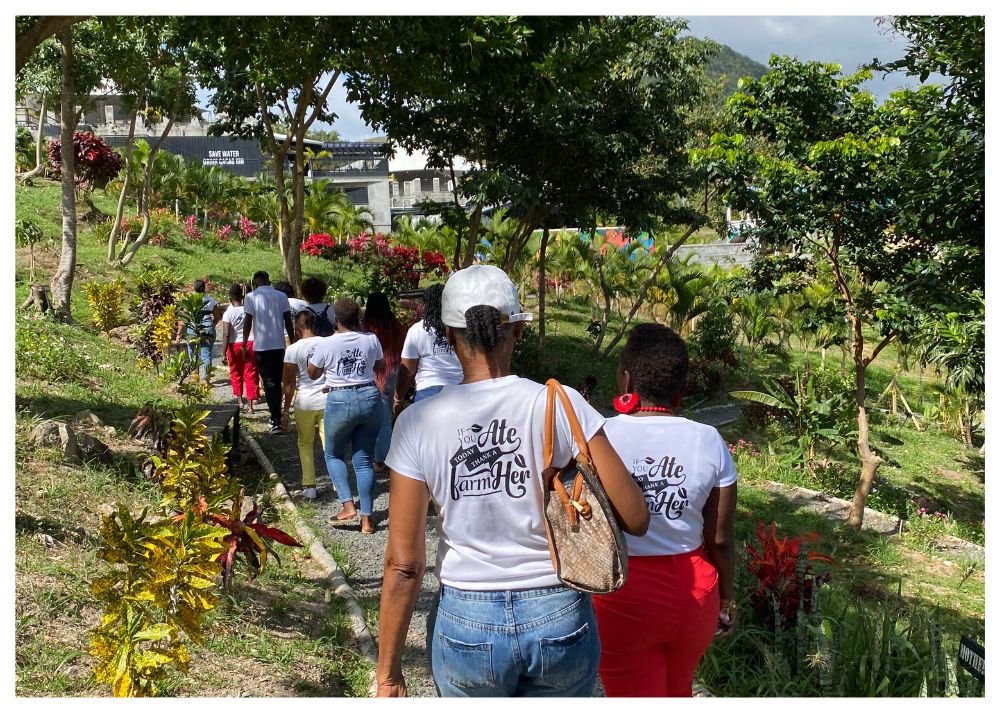
CAlso make time to visit Hotel Chocolat’s Rabot Estate, where Helen’s Daughters have an apprecntice programme running an organic farm that’s open for tours
As we walk through the cacao groves, Best shows me the biodiversity cacao needs to thrive – coconut, mango and citrus trees abound.
The organic produce grown at the farm is sold to the hotel and used in the Hotel Chocolat restaurant, which I highly recommend visiting to sample all the innovative chocolate-infused dishes, such as white chocolate mashed potato, cocoa roti stuffed with chicken and, of course, the in-house chocolate sweet treats. Visitors can also make their own chocolate bar, and a proportion of all sales goes towards stipends for the charity apprentices.
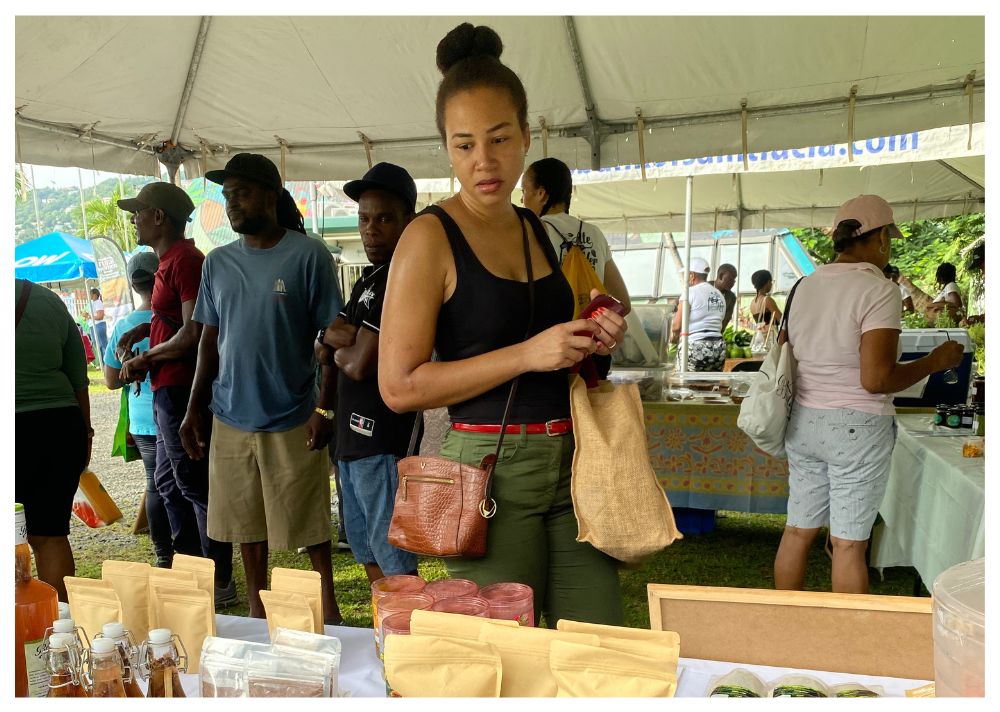
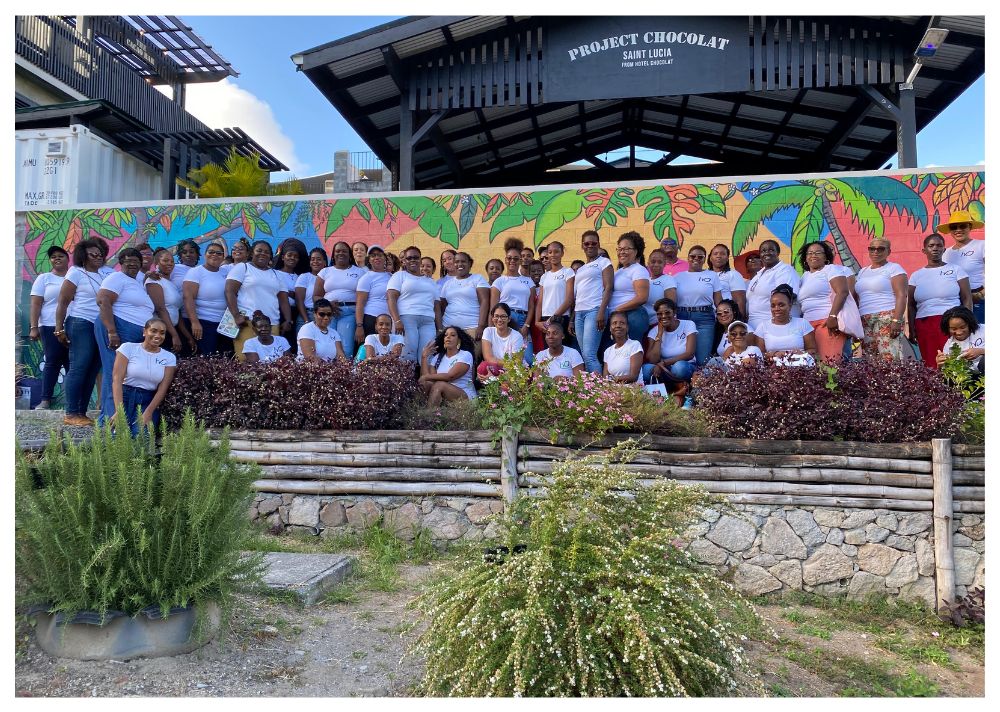
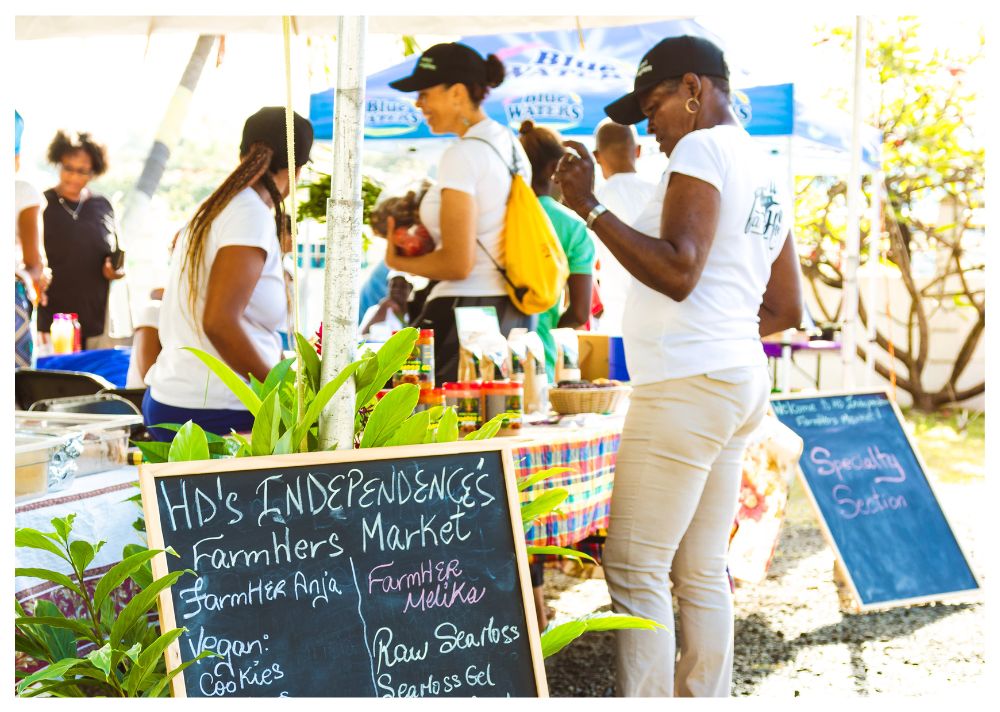
Honouring the past while looking to the future remains central to Caroo’s work and I end my time with her by hearing about Helen’s Daughters plans to create a Creole garden based on her grandmother’s. The charity has secured land from the government and as well as being open to tourists, there’ll be community composting, a café to try the food they grow and make, a gift shop and further markets. There’ll also be land for 10 landless women in an effort to create some balance – currently 70% of St Lucia’s farmland is owned by men.
However, you decide to spend your time in St Lucia, whether it’s mainly relaxing on the private beach at East Winds hotel or strolling through Soufrière, be sure to make some time for Helens’ Daughters to support the FarmHers of the now and the future.
Honouring the past while looking to the future remains central to Caroo’s work; she shares her plans to create a Creole garden based on her grandmother’s
Book your trip to St. Lucia with us and donate 5% of your holiday price to the charity of your choice at no extra cost to you. Click the button below to get in touch with us!
This is a feature from Issue 19 of Charitable Traveller.









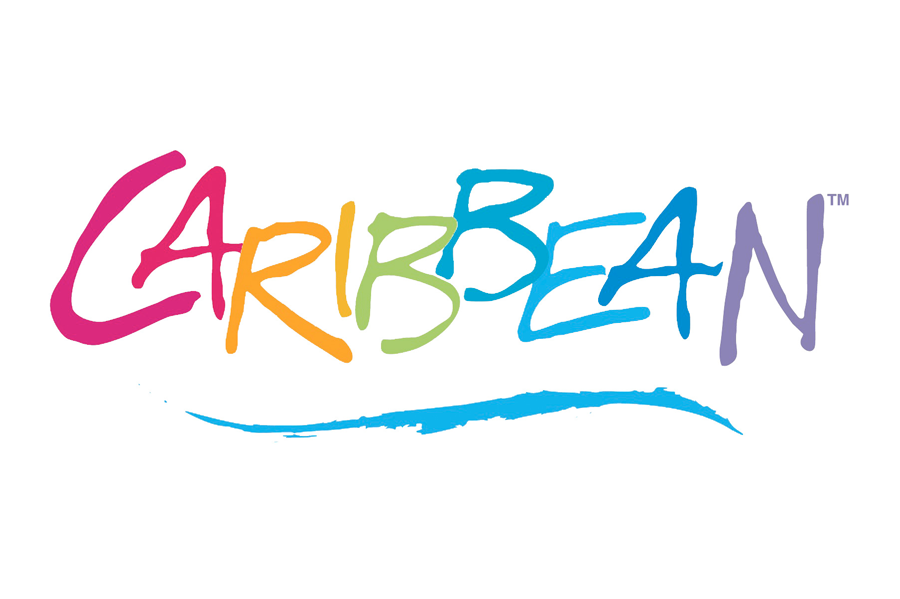
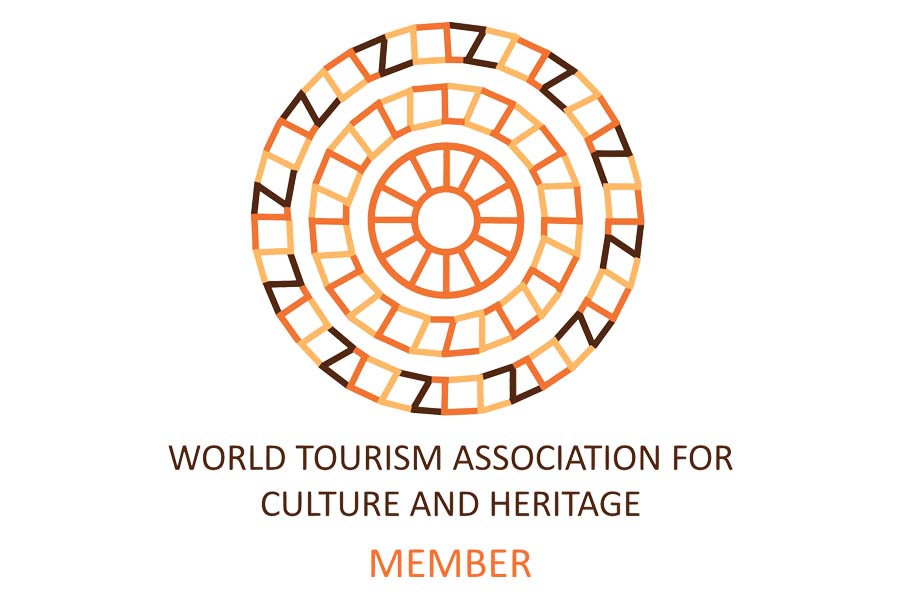






 by net effect
by net effect